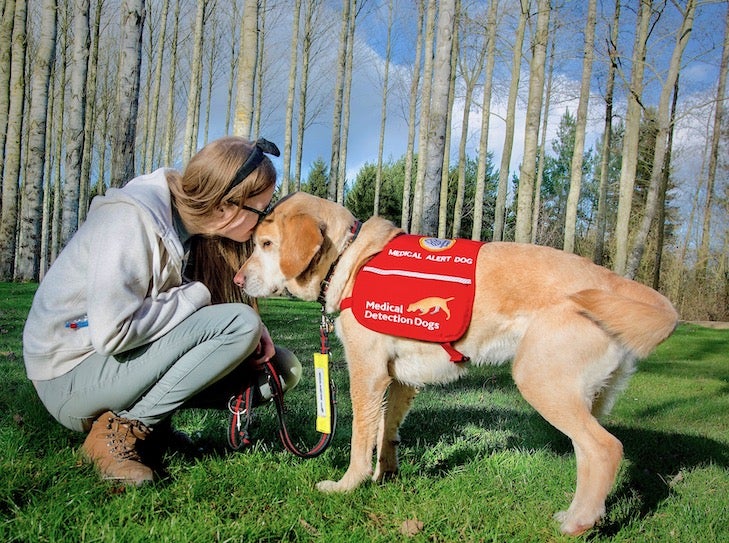
Here’s a simple, uncomplicated prescription for what ails you: a furry, four-legged friend.
You probably already knew that, but the new book Doctor Dogs by Maria Goodavage will likely reinforce that conviction. A fascinating confluence of colorful case histories, accented with wit and wisdom, it personalizes a wide array of medical disorders, leaving you to visualize a heart-wrenching push and pull of emotions with the canine and human subjects.
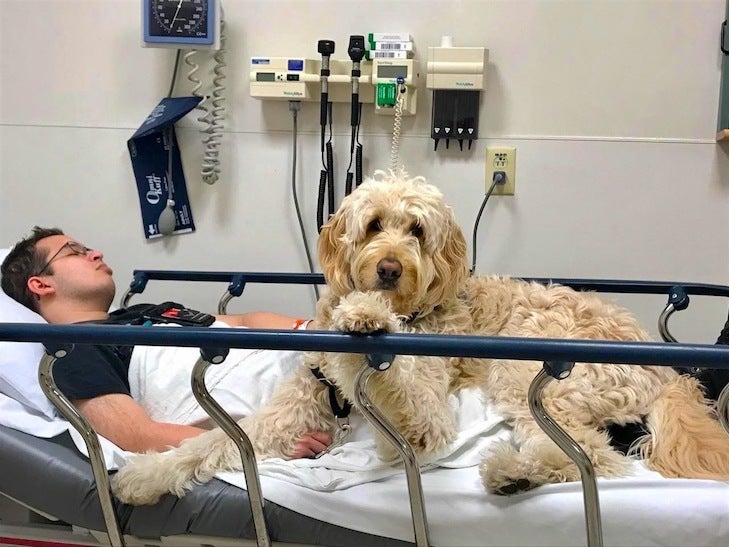
As the title implies, dogs are on the “cutting edge of science” throughout this 300-plus-page volume, helping detect, alert to, and provide relief for diseases and disorders such as diabetes, cancer, Parkinson’s, autism, seizures, schizophrenia, and PTSD.
The complexity of medicine can be overwhelming, but the globetrotting Goodavage simplifies the subject matter of medical alert dogs from Europe to the U.S., with a fresh, yet sensitive approach in this smooth-moving narrative.
Diabetes-Detecting Dogs
Doctor Dogs details case after case where canines’ olfactory skills are on point, including that of Dr. Steven Wolf, a California physician who has himself been struggling with type 1 Diabetes for years.
“Beyond their alerting, dogs have intangible benefits for diabetics, like getting us out of bed to exercise, and decreasing isolation and depression,” affirms Dr. Wolf. “A diabetic-alert dog has the combination of being able to save your life at the same time as giving unconditional love.”
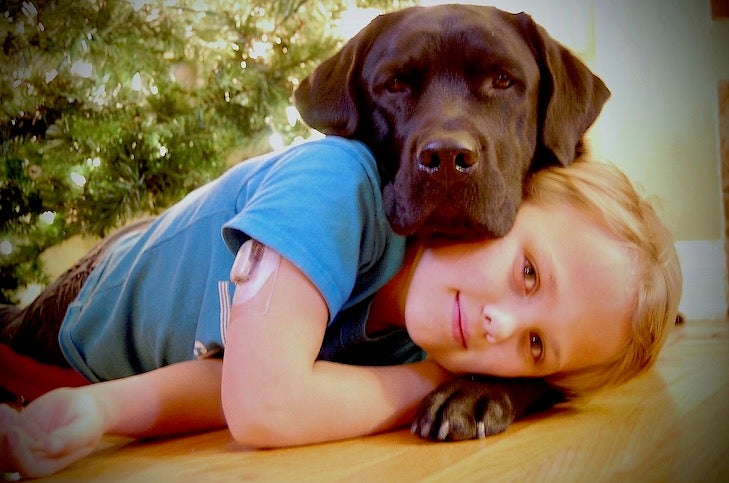
While the success of medical alert dogs is obvious to those who’ve witnessed it firsthand, the author is careful to balance the big picture with scientists’ concern over the lack of a strong set of empirical data in some instances.
“Despite the promising early studies that reported on the dogs who were trained to alert to their people, the consensus in some circles is that dogs cannot be trained to alert to seizures in the same way dogs can be trained to alert to diabetes, that they can only be encouraged if they show signs that they can tell a seizure is coming,” writes Goodavage.
An Olfactory Approach To Oncology
So far, however, Goodavage notes that dogs have been trained to detect breast, cervical, colorectal, lung, stomach, liver, ovarian, prostate, skin, and thyroid cancers, with varying levels of success. Trained dogs have sniffed for cancers in a half-dozen sample types, including blood, sweat samples, breath, tissue, and even urine. Some oncologists believe that each cancer has a unique smell to it, and cancer-detecting dogs have proven increasingly adept in their ability to notice these portentous scents.
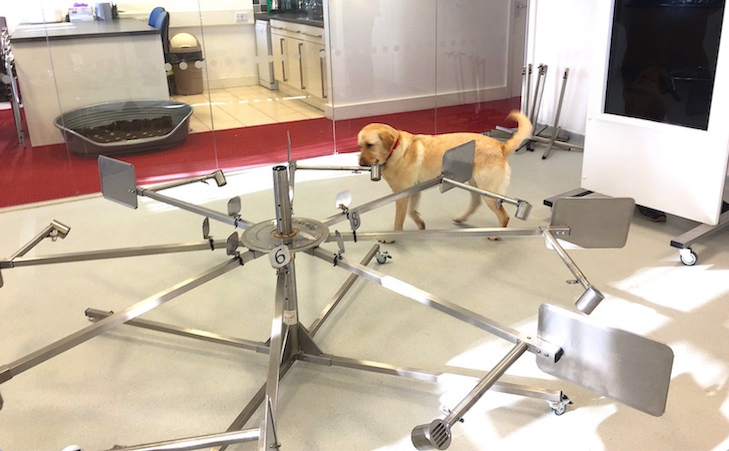
While the skills of medical detection dogs are undoubtedly impressive, the author notes that the drive for a reward is key. If the dog is toy- or food-motivated, he or she won’t have much motivation to work. Furthermore, in contrast to analytical instruments, dogs may be subject to things like boredom, hunger fatigue, and external distractions.
Multi-Talented Medical Marvels
Doctor Dogs abounds with stories of medical alert dogs who have a nose for sniffing out biochemical changes in the body, even when they may not have been trained for it. For example, Mary McNeight ran the Seattle-based Service Dog Academy, which trained diabetic-alert dogs. Once McNeight began suffering from migraines, her own service dog segued from helping her with hypoglycemia, to alerting to her migraines, with no training necessary.
“These dogs won’t detect something like a trick knee,” she explains. “But, there’s a potential for dogs to be able to alert to illnesses in areas we haven’t even thought of yet. We just have to keep trying and see what works.”
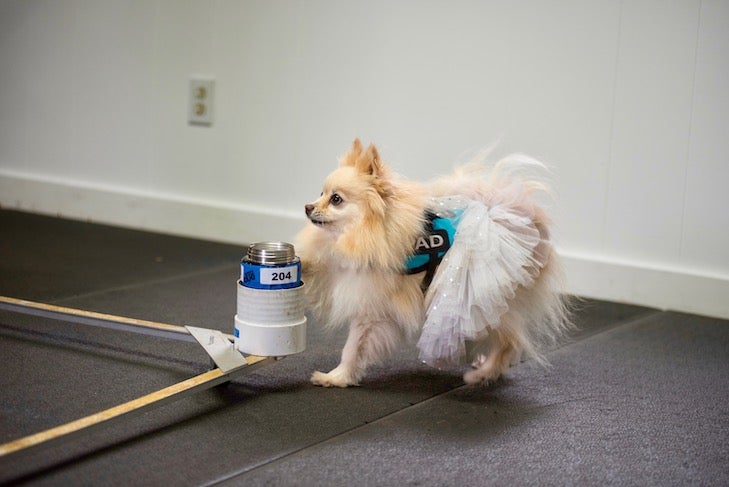
Goodavage manages to incorporate a bit of levity into the mix, too, as she details a dog named Angus, who has specifically been trained to do something nearly every dog loves doing –sniff poop.
“An English Springer Spaniel named Angus may consider himself the luckiest doctor dog in the world. While other medical alert dogs sniff out cancer, diabetes, and all manner of disorders, Angus spends his days sniffing for something close to the heart of any self-respecting dog: feces,” writes Goodavage.
“When he wags and zags up and down the halls of Vancouver General Hospital, his quarry is poop, but not just any poop. It’s poop that contains the dangerous superbug Clostridium difficile. Angus’s job is to sniff out C. diff in the hospital environment before it has chance to go on its next joyride from hand to mouth to gut.”
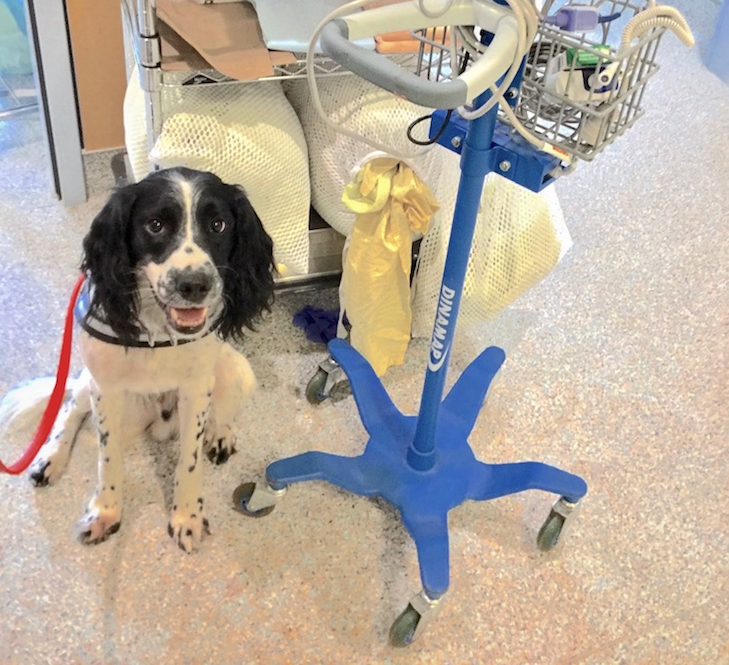
Saluting Psychiatric Service Dogs
The book’s final section, entitled “Out of the Darkness,” is packed with a sobering chronicle of stories, detailing how multiple breeds bring their rich toolbox of assistance to the sides of those suffering from a mix of mental health disorders. Psychiatric service dogs were the fourth most common type of service dog placed by facilities in the United States in 2013 and 2014, according to a recent University of California, Davis, study, ranking after guide dogs, mobility assistance dogs, and hearing dogs.
These dogs are absolute game-changers for those battling the challenges of mental health disorders daily, striking an ideal balance between friend and helper, while providing their owners a sense of purpose, and giving added meaning to their lives.
For instance, Army veteran Wil Nobles deployed to Iraq twice, and returned from his second deployment with a diagnosis of post-traumatic stress disorder. Doctors prescribed Nobles a variety of medications to treat the PTSD, but none of them helped. In the end, it took a psychiatric service dog to give him his life back.
“I’ve hardly had any angry outbursts since Harnett came along,” says Nobles. “He’s brought out the real me, when medication only hid it.”
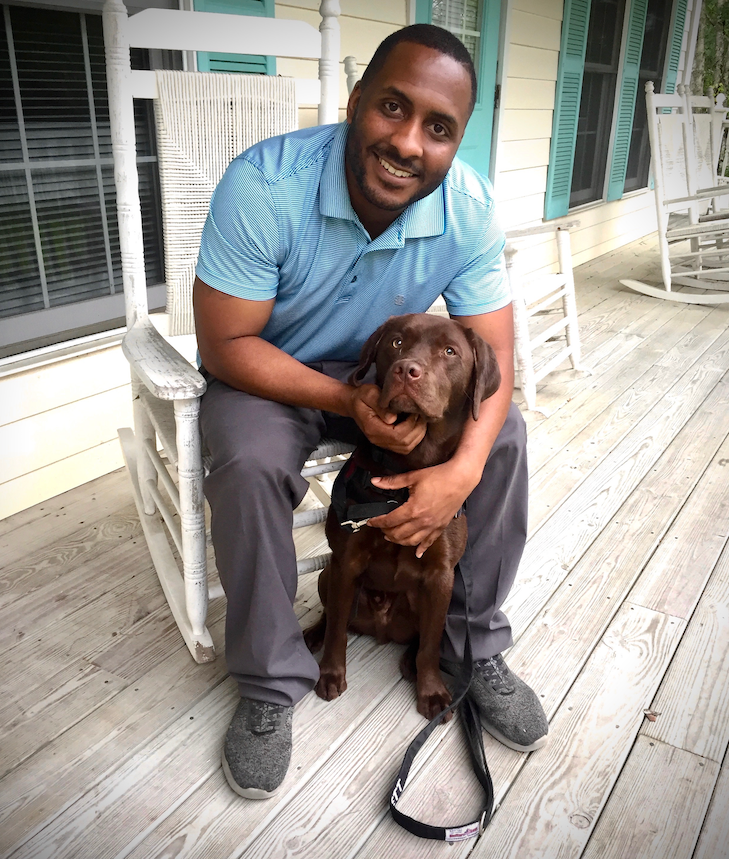
So, the next time someone asks if there’s a doctor in the house, the answer might just be that furry, four-legged creature sitting right beside you.
Doctor Dogs by Maria Goodavage is now available for purchase.

